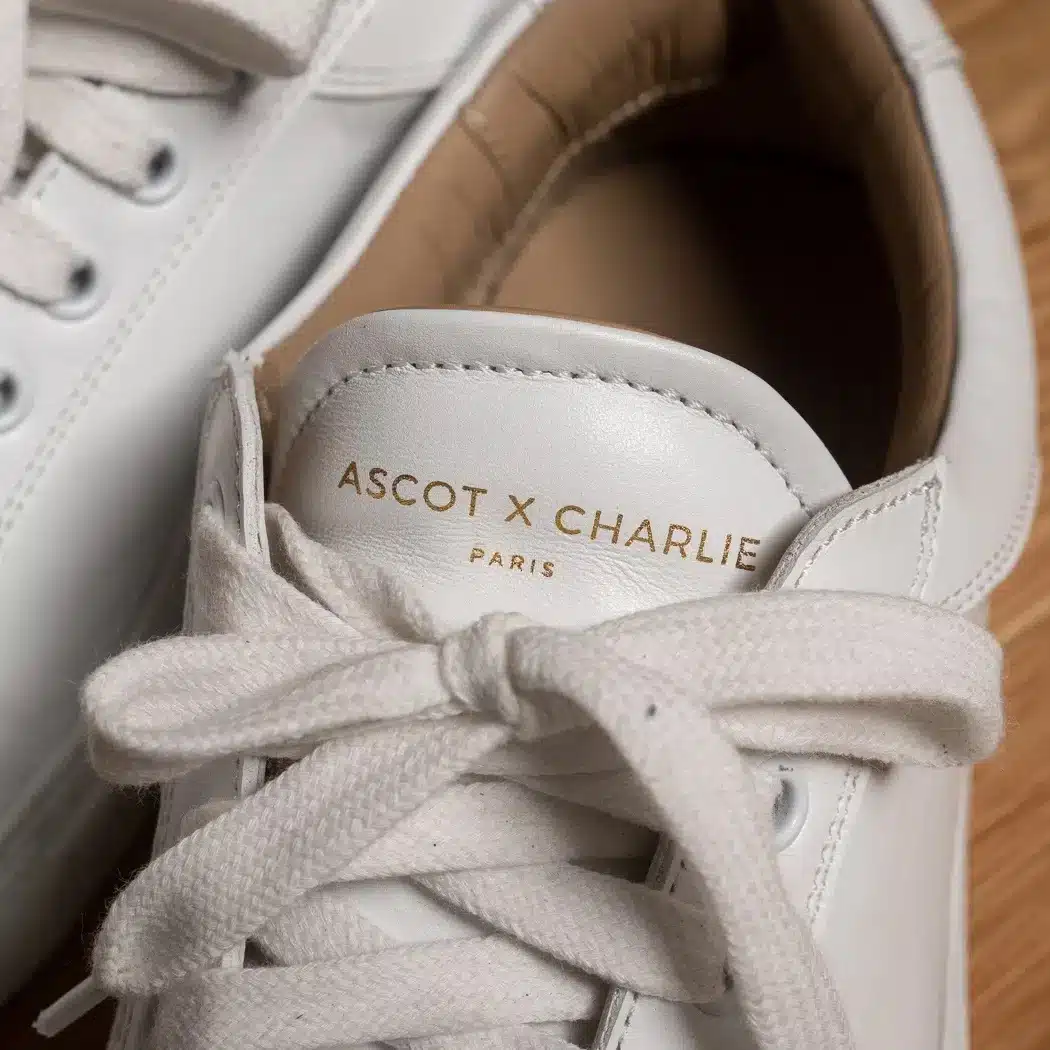So many clothes feature logos these days. The question is, “What place do logos have in a stylish man’s wardrobe?” Join me as I explore this controversial topic.

What do you think? Are logos a no-go?
It may come down to a single question: “What’s your personal brand?”
I’ve considered many aspects of this topic. I’d say that some logos look tacky.
However, some small logos and/or initials could have the potential to add to a quality garment. Brands like Gucci or Louis Vuitton tend to leave their mark on all of their products.
Often, and especially when marketed towards the less affluent, they print their logos big and bold to allow buyers to “flex” the fact they can afford something from a designer brand.
Branding comes in many forms. Branded patterns and prints help brands of many varieties to be recognized from seemingly a mile away.
When you think about it, it’s quite hard to avoid wearing logos. What, then, does wearing logos communicate to others?
It’s probably just a sneaking suspicion, but I think that it could negatively impact your image — your own personal brand, if you will.
Think about it: Do you want to represent those brands? Do you support what they represent and message? Moreover, have you considered how it might make others perceive you?
There are plenty of things to consider, and I’m sure we could spend all day analyzing how logos impact your image, both positively and negatively.
But rather than doing that, let’s cut to the main reasons it could be negative and maybe harmful to your self-image.
Why Do People Wear Clothing With Logos?
People wear clothing with logos for many reasons. But often it’s because they seek status or attention.
Logos Can Signal Your Part of a Group
Sometimes it’s to fit in, maybe even as conversation pieces. You may have felt how college swag can help you feel like a member of a community. Perhaps you’ve even struck up a conversation with someone in the grocery store because their hoody advertised that you have the same alma mater.
Here in Utah, for instance, wearing a Brigham Young University (BYU) logo can say a lot about a person. Not only can it indicate where you went to school, but it also, in most cases, advertizes your religious affiliation.
Most might argue that having logos greatly affects their style and how they organize each outfit. For example, when dressing formally or casually, you typically won’t clash different logos together.
An outfit with two competing brands could confuse what could have been a singularly positive appearance and statement.
Logos (Or Lack Thereof) Can Indicate Staus
It may seem counterintuitive, but more often than not people perceived to have high status don’t wear logos. If they do, they are small enough that it won’t distract or potentially separate them from their clients, employees, or others.
So if you like being flashy by getting all decked out out in Gucci, you may actually be doing yourself a disservice. Instead of looking “high class” you’re likely to make people think you’re immature and stylistically complacent or ignorant.

To others, your desire to wear flashy clothes with big logos might be intimidating. And, unfortunately, some expensive logos can make you a target for potential thieves or scammers.
That said, I don’t think most people care that much whether you’re wearing logos or not.
However a brand such as Gucci will often repetitively paint their quality garments in logos and patterns. The result is an overstated and even braggadocious style that can even become obnoxious to the eyes.
Are There Any Appropriate Places To Wear Clothes With Logos?
Now, let’s consider when and where logos are most appropriate.
Wearing Logos On Special Occasions/At Certain Places
Where you spend your time will also greatly impact if wearing logos is right for you. For example, at a sneaker convention, or maybe even on the Vegas strip, wearing logos is common, even to be expected!
Wearing Logos At the Gym
Another place you’ll see tons of logos is at the gym. When you’re pumping iron I feel logos don’t matter much, especially if they are from athletic brands.
Most people won’t even notice if you’re wearing Nike, Adidas, Fabletics, Lululemon, etc. at the gym. They’re focused on their workout.
Some of the best-performing athletic clothing have multiple visible logos.
Wearing Logos to Meet New People
Sometimes I even appreciate seeing logos in the gym as they can reflect my interests.

In fact, once when I was wearing a thrifted shirt from a small local Utah brand someone approached me and asked about it! The shirt depicts three chimpanzees sitting together with one covering its eyes, another its mouth, and the last its ears.
As I already mentioned, college-branded clothes can start conversations too. I love wearing my WSU (Washington State) hoodie to the gym or elsewhere because it attracts a small family of people. Not many people are familiar with a small college town in the Southeast of Washington.
When I do meet someone in the know, we suddenly build an instant connection as we share memories of the campus, the restaurants, and the sports.
When Not to Wear Logos
Certainly, logos should not belong in a formal or professional setting. In the office, at a wedding or funeral, or at church, it’s best to keep things simple.
The last thing you want is to attend someone else’s wedding dressed as a walking billboard. Ultimately, simplicity will signal respect as you carry yourself with respect.
Likewise, at the office, you won’t impress your boss wearing an L.V. patterned suit, but you can plan to wear your larger logo garments on a night out on the town. However, I’d argue that wearing such conspicuousness in many other places won’t feel appropriate.
Your Personal Brand and Image
A point I’d like you to consider once again is your personal brand and image.
Who do you represent? Is Nike paying you to wear their shoes?
Probably not (unless you have a signed sponsorship).
Nikes are great on the court or track, but probably not the best choice for casual wear. Then again, maybe Nikes fit your personality and personal self-image. If so, go ahead and wear them!
Remember, though, that your brand is one of the most valuable things you will ever build in life. It is, in part, what allows you to create opportunities and form life-changing relationships.
Think of this: Does your grandma respect your outfits the same as your friends? There have been times I cringe to recall when I’m sure my grandma just thought to herself, “What is he wearing?” I plead with you — don’t be that guy!
How To Wear Logos on Clothes
Logos are literally deeply embedded into the fibers of each of so many of our quality garments that it’s hard to escape them.
Although I’m against most logo-wearing, for the most part, I do believe you can make them work!
First, I aim to only wear pieces with smaller logos to avoid coming off as obnoxious or noisy. You can wear clothing like polo shirts, athletic shoes, shirts, shorts, or socks and they will appear completely appropriate and normal.
A simple and small logo on the other hand will make you look and appear more sophisticated, but the same can be said about forging logos altogether.
You could say that this is a minimalist approach. Minimalism promotes respect, assumes status, and even exudes an appearance of cleanliness and humility, rather than loudness.
But when it comes to luxury brand logos, I’d consider how you might compliment them in your choice of matching garments and accessories. Personally, I wouldn’t EVER combine other brands, which should be a major rule, as I’ve mentioned previously, because brands have the power to clash in rivalry.
Instead, I would work with the one piece and/or brand to act as a statement piece, maybe something to break up the monochromatic colors and give it some life.
Recently I’ve been playing with some plain essential t-shirts from Abercrombie & Fitch. I’ve found that the simplicity greatly improves my confidence.
I’ve even noticed that it makes my outfits look more expensive in a non-threatening manner. And better yet, I spent very little to accomplish such a powerful image.
When I worked in sales, that was exactly the image that I wanted to convey.
Without a prominent logo, I feel like I was more approachable.
Believe it or not, that simple shift to wearing fewer logos went a long way toward improving my communication skills.
Conclusion
Finally, as I think about it, whether or not I prefer wearing logos or not has flip-flopped over the years.
When I was in high school, brands, and logos determined your fate in the social hierarchy.
However, as I’ve worked on trying to improve my outward appearance, I find that I am less and less interested in wearing logos.
A modest man seeks a humble but strong countenance and presentation. In the workplace, marketplace, and home, his choices will impact how others perceive him.
Though it might sound hyperbolic, your personal branding decisions are of vital importance as you try to better yourself.
Do you like wearing logos? If so, what’s your all-time favorite logo? Let me know in the comments!






Ask Me Anything